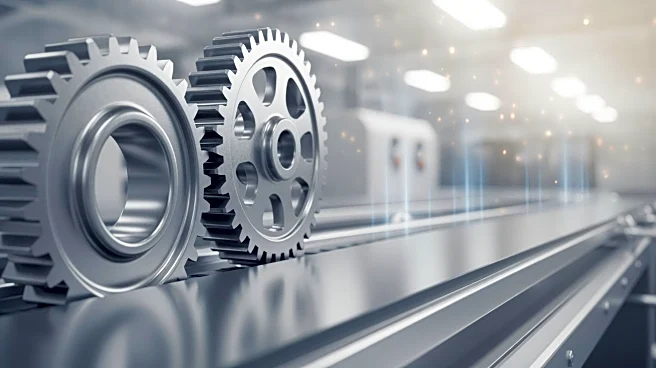What's Happening?
The BNZ-Business NZ Performance of Manufacturing Index has reported an increase in manufacturing sector activity for October, driven by higher new orders and improving demand. The index rose by 1.3 points
to 51.4, indicating expansion in the sector, although it remains below its long-term average of 52.4. A reading above 50 signifies growth. Despite the positive movement in new orders and production, the survey highlighted ongoing challenges in employment within the sector. BNZ senior economist Doug Steel noted that the October result marked the fourth consecutive month of expansion, a trend not seen in the past three years.
Why It's Important?
The rise in manufacturing orders is a positive indicator for the sector, suggesting potential recovery and increased business confidence. However, the persistent employment challenges highlight underlying issues that could affect long-term growth and stability. The manufacturing sector is a critical component of the economy, influencing supply chains, job creation, and economic output. The mixed results underscore the need for strategic interventions to address employment weaknesses while capitalizing on the demand surge. Stakeholders, including policymakers and industry leaders, must consider measures to bolster workforce development and sustain sector growth.
What's Next?
The manufacturing sector's trajectory will likely depend on addressing employment challenges and sustaining demand growth. Industry leaders and policymakers may focus on workforce training and development initiatives to enhance employment prospects. Monitoring future index readings will be crucial to assess the sector's recovery and identify areas needing intervention. Continued expansion could lead to increased investment and innovation within the sector, potentially driving broader economic benefits.
Beyond the Headlines
The employment struggles within the manufacturing sector may reflect broader labor market trends, including skills mismatches and automation impacts. Addressing these issues could require a multifaceted approach, including education reform and technology integration. The sector's performance may also influence trade policies and international competitiveness, as manufacturing is integral to export activities.









